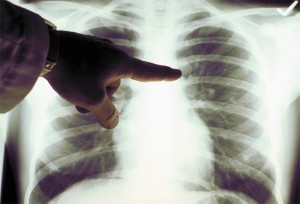 Approximately 219,000 people are diagnosed with lung cancer each year – over 103,000 women and nearly 116,000 men. Receiving a lung cancer diagnosis can be alarming. This article will provide some essential information to help you better understand your diagnosis. It is important to discuss treatment options with your doctor immediately. If you have any additional questions, please feel free to contact your doctor for help.
Approximately 219,000 people are diagnosed with lung cancer each year – over 103,000 women and nearly 116,000 men. Receiving a lung cancer diagnosis can be alarming. This article will provide some essential information to help you better understand your diagnosis. It is important to discuss treatment options with your doctor immediately. If you have any additional questions, please feel free to contact your doctor for help.
What is Lung Cancer?
Lung cancer is the uncontrolled growth of abnormal cells in the lung. Normal lung tissue is made up of cells that are programmed by nature to create lungs of a certain shape and function. Sometimes the instructions to a cell behave oddly and that cell and its offspring reproduce wildly, without regard for the shape and function of a lung. That wild reproduction can form tumors that clog up the lung and make it stop functioning as it should. Because of the large size of the lungs, cancer may grow for many years, undetected, without causing suspicion. There are two different types of lung cancer: small cell and non-small cell.
What are the Risks of Developing It?
- Smoking
- Exposure to radon (an invisible, odorless, tasteless gas that occurs naturally in soil and rocks)
- Exposure to secondhand or passive smoke
- Exposure to certain industrial and organic substances such as arsenic, asbestos, uranium, and diesel fuel
- Air pollution
- Previous lung disease
What are the Symptoms?
Symptoms of lung cancer can include the following:
- Coughing
- Shortness of breath
- Fatigue
- Pain in chest, shoulder, upper back or arm
- Repeated pneumonia or bronchitis
- Bloody sputum
- Loss of appetite and weight loss
- Trouble swallowing
- Hoarseness
- Wheezing
- Swelling of face or neck
Choosing a Treatment
If you have small cell lung cancer, the main treatment will most likely be chemotherapy, either alone or with radiation. Surgery might be done if it is limited stage cancer. After the cancer is found and staged, your doctor will talk to you about treatment choices. Give yourself time to take in what you have learned. The most important things to think about include the stage and type of cancer, your overall health, the likely side effects of the treatment, and the chance of curing the cancer or helping you live longer. Age alone should not keep you from having treatment. Older people can be helped by treatment as much as younger people as long as their general health is good.
Treatment Options Surgery
- Lobectomy: removing an entire lobe of one lung. The right lung has three lobes, and the left lung has two. Lobectomy is the most common type of lung cancer surgery.
- Wedge resection: removing a small section of one lung.
- Segentectomy: removing a segment (part of a lobe) of one lung.
- Sleeve resection: removing a part of the airway with or without the adjoining lung and reattaching the remaining ends to preserve lung tissue and avoid a larger resection.
- Pneumonectomy: removing a lung.
- Chemotherapy: can be ingested in pill form or injected by needle into a vein or muscle. This treatment is considered a systemic therapy, meaning that the drug enters the bloodstream and circulates throughout the body to reach and destroy cancer cells in the lung and beyond.
- Radiation therapy: a treatment using high-energy rays or particles to destroy cancer cells. This treatment may be used to kill any cancer cells that remain in the lung area after surgery or chemotherapy.
Hematology & Oncology Consultants of Florida – 352-343-6900
 Central Florida Health and Wellness Magazine Health and Wellness Articles of the Villages
Central Florida Health and Wellness Magazine Health and Wellness Articles of the Villages



